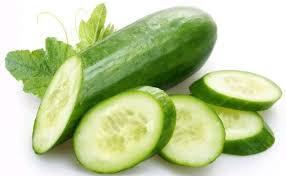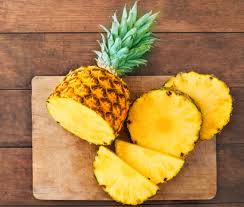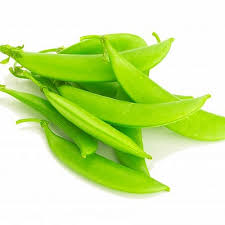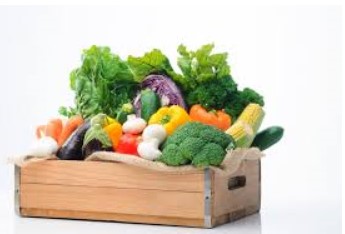This week I found myself thinking about cucumbers.
It was while I was standing and chopping a green salad, and eating a cucumber, so that might be the reason… On the other hand, it was pouring rain outside, accompanied by lightning and dramatic sounds of thunder and even hail to complete the setting. How does all this relate to cucumbers? Well, cucumbers like heat, like all the gourd family members, so the only way to continue enjoying cucumbers in the winter is to grow them in greenhouses.
Organic greenhouses do not receive additional artificial heating, yet the cucumbers are content enough under a roof and with warm care that allows them to flourish and prosper. Rather than struggling to survive in a world full of pests who like to eat them (totally understandable), when growing on the ground exposed to critters, in the greenhouses the cucumbers grow on trellises.
In other words, it grows vertically on “shelves” of soil, from which strong threads are drawn for the tendrils to wrap around and climb upwards. And so I found myself happy for the cucumber in the winter. I enjoy hearing the sounds of the storm while snuggling up inside the house, pleasantly chopping a green salad, and I'm sure the cucumber is happier growing in a greenhouse with this kind of weather outside.
It was not us, the entrepreneur Israelis, who came up with the idea of growing cucumbers not in the summer season, and with the use of various aids. The first, apparently, to think about the subject were the Greeks – the subjects of the Roman Emperor Tiberius knew that he insisted on having the cucumber on his table daily during summer and winter, even if it happened to be winter outside.
Back then, before the age of internet, Selfies and greenhouses they had to find an original and efficient solution: “his kitchen-gardeners had cucumber beds mounted on wheels which they moved out into the sun and then on wintry days withdrew under the cover of frames glazed with transparent stone. (Natural History by Pliny the Elder, book 23). This is probably the closest thing to greenhouses that could be found at that time.
Cutting the cucumber into my salad bowl reminds me how often the cucumber, along with other vegetables, is taken for granted. What could possibly be more Israeli, even Middle Eastern, than the chopped Arab salad of cucumber-tomato-lettuce? Some may pass on the addition of tehini, there will always be disagreement regarding the parsley or coriander, but the cucumber is the basic of basics. But that is not true only for us, residents of the Middle East.
Actually the cucumber was part of the human diet since ages ago: 3,000 years ago, people had grown cucumbers, and it grew so cultivated that its wild version can no longer be found. Evidence of eating cucumbers was discovered in the pharaohs' graves, and Native Americans grew them long before Columbus discovered America.
The cucumber has been around humans long enough for us to invent different names and confuse them: The word "cucumber" comes from the Latin name "cucumis." Three hundred years ago, the English called it "cowcumber" when they were believed it to be only fit for animal fodder. The "zucchini" that the Israelites longed for while crossing the dessert after the Exodus from Egypt, were actually cucumbers. The Hebrew word "מלפפון" comes from the Latin origin – MELOPEPONES, meaning Melon – Apple.
In our store, and in your boxes, you can find several kinds of cucumbers: of winter-greenhouse and of summer-field organic cucumbers (different in shape), the large crunchy ones under the “Dutch cucumber” sign, and of course, in season, also their cousins the Armenian Cucumber, aka Fakus, that are actually a specie of melon. Anyway, all cucumbers are rich in vitamin A, vitamin C, calcium and beta carotene, and are great for those who want a 10 minutes getaway – just place two cucumber circles on the eyes and feel your entire face cool and relax (It works well also on the feet, but the image of the cucumber eyes is much more classic). Organic cucumbers should be eaten with the peel – it contains a significant portion of the vitamins and nutritional fiber.
To health!
Yours,
The garden team
We can expect to receive in our organic vegetable baskets (draft only):
Cucumbers
Tomatoes
Lettuce
Potatoes
Zucchini
Kale
Parsley
Cabbage
Celery
In the LARGE vegetable baskets also:
Sweet potatoes
Cilantro
Peppers
In the organic fruit baskets:
Oranges
Clementine
Bananas
Pecan, not peeled
In the LARGE fruit baskets also:
Red grapefruit
Sweetie











